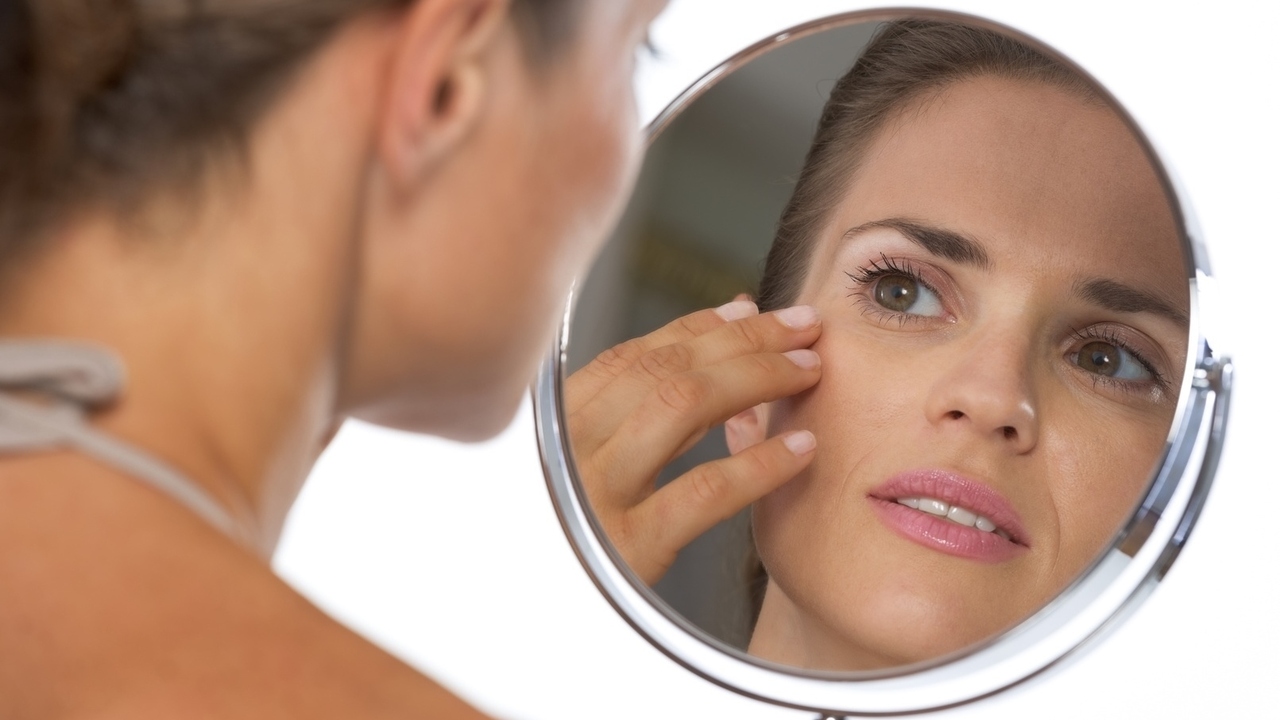It’s obvious from an early age whether a child is right-handed or left-handed. This kind of dominance affects which hand works better for things like brushing our teeth and holding a pencil. But many people aren’t aware that one eye is also dominant over the other. This visual dominance can play a key role in our success in a variety of activities, especially sports.
Just as we are born either right-handed or left-handed, one of our eyes tends to be dominant from the time we are very young. Try this simple test to figure out which one of your eyes is dominant:
1. Hold your hands up about 8 inches from your nose with your palms together in a “prayer” position.
2. Separate your palms but keep your thumbs together to form a triangle between your fingers and thumbs.
3. With both eyes open, look through the triangle at a distance object such as a picture on the wall across the room.
4. Without moving your hands, close one eye. If the object is still visible, the open eye is your dominant eye. If the object seems to disappear behind your fingers, the closed eye is dominant. To confirm this, switch which eye you are looking through. The eye that can still see the object without moving your hands is your dominant eye.
This may seem like a silly game, but eye dominance can play an important role in athletic success in certain sports.
The dominant eye is often better at processing visual information than the non-dominant eye. Athletes who are aware of which eye is dominant can develop strategies to use the “better” eye to help keep track of fast action in basketball or baseball. This can be as simple as remembering which way to turn the head so the dominant eye has the clearer view of the action.
Some people find that their eyes are “cross-dominant” compared with their hands. This means a right-handed person may have a dominant left eye or a left-handed person may have a dominant right eye. This happens because eye dominance and hand dominance are controlled by different parts of the brain. So some people match and other people don’t.
Knowing both eye and hand dominance can be a big help in sports such as archery and target shooting. Most people decide which eye to use to sight on a target based on which hand is dominant. This works well for people who have both eye and hand dominance on the same side. But people with cross-body dominance may find they can hit the target more often if they switch how they shoot so they are sighting on the target with the dominant eye, even if that means holding the firearm in the non-dominant hand.
Source:
All About Vision




Add a Comment2 Comments
Hi Lioness111,
September 25, 2010 - 3:57pmI'm glad you enjoyed the article. Try this... pick a smaller object, like a light switch that is about 6 to 10 feet away. Make the triangle, them move your hands closer together so the triangle is smaller and put your hands closer to your face. Look through the triangle with both eyes and make sure the object is in the middle of the triangle. Then try closing one and then the other eye and see what happens. If you still can't tell, you might not have a dominant eye - some people who are ambidexterous can use both hands equally well, so it's possible that your eyes are equally dominant. Let me know what you decide!
Denise
This Comment
Denise, I absolutely loved your article! For some reason or other, I don't remember ever knowing about eye dominance. I keep trying to do the triangle and looking through one eye at something on the wall.but I am still having trouble deciding which one it is. There are two pictures on the wall, I close one eye and I see the one on the left, and I close the other eye and I see the one on the right. Boy, do I feel like a dummy. Please tell me what I am doing wrong!!!! Thank You! Sincerely,Lioness111
September 25, 2010 - 10:55amThis Comment